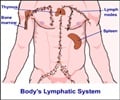A better understanding of how the Leishmania donovani parasite manages to outsmart the human immune system and proliferate with impunity has been gained
A better understanding of how the Leishmania donovani parasite manages to outsmart the human immune system and proliferate with impunity has been gained by Professor Albert Descoteaux's team at Centre INRS – Institut Armand-Frappier. This parasite causes visceral leishmaniasis, a chronic infection that is potentially fatal if left untreated. This scientific breakthrough was recently published in PLoS Pathogens.
Some 350 million people live in areas where leishmaniasis can be contracted. Over 90% of cases are reported in India, Bangladesh, Nepal, Sudan, and Brazil. Leishmaniasis is also found in Mexico and elsewhere in South America. There are no effective vaccines to prevent leishmaniasis, and resistance issues greatly reduce the efficacy of conventional medications.The parasite, which is transmitted to humans during the blood meal of infected sand flies, is internalized via macrophages in the liver, spleen, and bone marrow. However, this parasite manages to alter the normal phagocytosis process (destruction of foreign bodies), resist this process, replicate itself, and infect other macrophages. This resistance process notably involves blocking the normal acidification process within the macrophage by disrupting membrane fusions.
To date, few studies have attempted to identify the regulators of these membrane fusions and their role in the phagolysosomal biogenesis process (a compartment where pathogenic microorganisms are usually killed). The work by doctoral candidate Adrien Vinet and Professor Descoteaux shed new light on the biology of Leishmania parasites, particularly the molecular mechanisms by which they manage to outsmart the human immune system.
Source-Eurekalert
RAS










